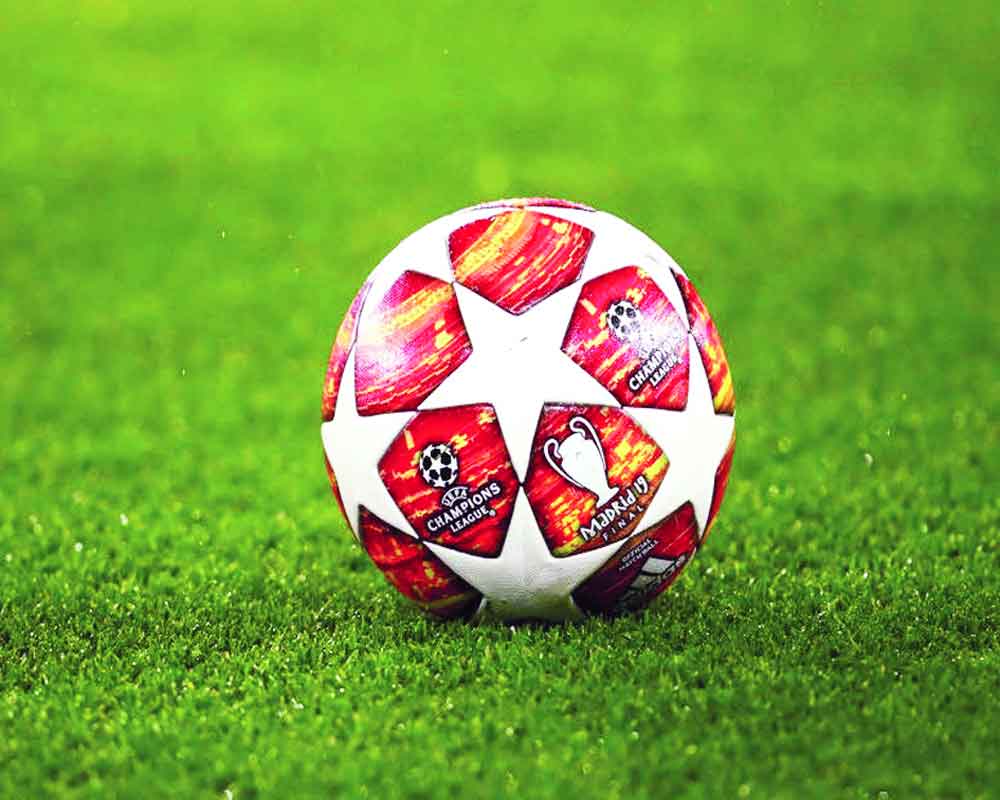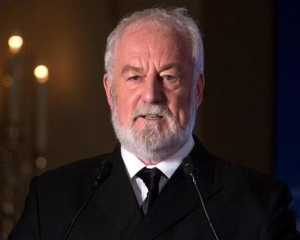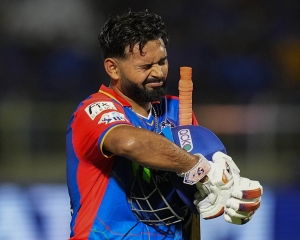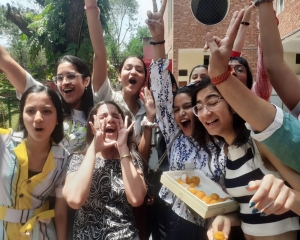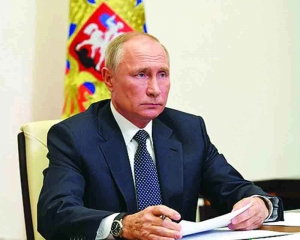Football legend Johan Cruyff was a proponent of a philosophy known as ‘Total Football’, where any outfield player can take over the role of any other player in the team. The theory requires intelligent and technically diverse players.
In that sense, Liverpool are closer to this model of football than Tottenham Hotspur, who have players with fixed roles
Today is the judgement day of the UEFA Champions League 2019. The excitement is palpable. Football fanatics wait eagerly for this day each year as one football club out of all the major European leagues is crowned the champion of club football. This time, the finalists are as unexpected as the finale of Game of Thrones. It’s Bran vs... I’m sorry, it’s Liverpool vs Tottenham Hotspur! Liverpool, you might say, are an expected outfit as they were in the final last year as well and are historically one of the heavyweights of the competition with five European cups in total. Only AC Milan of Italy and Real Madrid of Spain have more, with seven and 13 respectively. But the manner in which they have reached the final (there, there Barca fans, it’s all going to be okay, I promise) was unexpected and exhilarating to say the least.
To put things into perspective, let’s just say they did what no other team thought possible in the history of the game and competition. And that too against probably one of the favourites to win it this season — Barcelona of Spain with five cups in total — with one of the best players to have ever graced the beautiful game. Lionel Messi is still smarting from that loss. He might want to go to Andrea Pirlo for some tips to deal with it! So yes, two completely unexpected finalists. Spurs have reached their first Champions League final in their history by beating the champions of England, Manchester City, and the neutral’s favourite, the darling of every football purist right now — Ajax, the champions of Netherlands. We shall delve deeper into what football means to all these teams, their philosophies, and their strategies. So sit back and relax. We’re in for a treat this June 1 (June 2 12.30 am IST).
The Champions League is regarded as the most prestigious of club football competitions. It comprises the best teams taken from all major European football leagues and starts off with a group stage format later going into knockouts of ‘2 legs’ — home and away to keep it as devoid of bias as possible. The final is held at a neutral venue — this time it’s the Estadio Metropolitano, home ground of Atletico Madrid. The last season, Liverpool were beaten by Real Madrid in the Olympic stadium of Kyiv, Ukraine.
So let’s get down to business and talk about the two teams out of 32 whom it has all boiled down to — the finalists. Starting with the North London club Tottenham Hotspur or Spurs as they are colloquially called. This is a huge occasion for them. It’s not only the first Champions League final in their history — they’ve been to three UEFA Cup finals, winning two of them in 1972 and 1984 — but also their first chance for silverware after the 2015 League Cup final where they lost to Chelsea. Their last trophy was in 2008 when they won the domestic League Cup beating Chelsea.
Another English club awaits in the final who have had their own share of final disappointments of late (Liverpool have lost five of the last six major finals they have reached). Jurgen Klopp, their manager, has lost all of the last six he has reached — with his present club Liverpool and previous club Borussia Dortmund included and will be itching to put that record straight and deliver the first trophy of the Klopp era. Spurs have a long illustrious history, though it’s nothing compared to their final counterparts. They were incidentally the first British club to win a UEFA club competition — the European Cup Winners’ Cup in 1963. They were also the inaugural winners of the UEFA Cup in 1972, becoming the first British club to win two different major European trophies. They have collected at least one major trophy in each of the six decades from the 1950s to 2000s — an achievement only matched by Manchester United.
Liverpool, on the other hand, are no strangers to this competition. They are the most successful British side in Europe and have won the competition five times. They reach this final on the back of one of the greatest comebacks of all time against one of the greatest sides with one of, if not the, greatest player of all time. It was only the third time in the history of the competition that a team rallied from three goals down after the first leg of a semi-final and progressed to the final. Panathinaikos did it in 1970-71 against Red Star Belgrade (on away goals rule) and Barcelona did it in 1985-86 against Gothenburg (on penalties). No team had done it outright or in the Champions League era. Barcelona have now let go off three goal advantages in the first leg to lose the tie in consecutive seasons (Roma won 3-0 having lost 4-1 in the first leg away to reach the semi-final last season).
Messi had promised the fans he would bring the cup home this time, but having done everything he possibly could, he was let down by his teammates for a second consecutive season. Salah, Liverpool’s top scorer, who missed the game as he followed protocols after a concussion, entered the stadium before kick off wearing a T-shirt bearing the message: “Never give up”. And boy did they take it seriously. Liverpool are known for such impossible comebacks over the years. There was the 3-1 win over Saint-Etienne in the 1977 European Cup and the 4-3 win from 2-0 down against Borussia Dortmund in the 2016 Europa League quarterfinals. The last gasp 3-1 win over Olympiakos, sealed by Steven Gerrard’s late long range goal, in the 2004-05 final group stage match without which they would’ve never progressed and Istanbul would never have occurred, is also celebrated as much as the Vladimir Smicer strike in the Ataturk stadium.
Talking of the managers of the two teams, Jurgen Klopp of Germany and Mauricio Pochettino of Argentina have been in charge of their clubs since 2015 and 2014 respectively. Both managers have a lot in common. Both are excellent coaches and understand the psyche of the players well. Both are coaches of teams that don’t believe in spending excessively — their net spend over the past few seasons is the lowest out of the ‘Top 6’ of England, the other four being Manchester United, Arsenal, Chelsea, and Manchester City. The Manchester clubs are the biggest spenders but their league positions (City finished first and United had to settle for sixth in next season’s Europa League) show that money makes little difference when you don’t have the right manager. Both have been unsuccessful in bringing substantial reward in the form of silverware for their clubs in spite of playing some beautiful football and forging a team identity of their own. Whoever loses the final will be aggrieved at being the last unlucky person in the league.
Coming to the unexpectedness of the participants of the final, this had all the makings of a Cruyff final — Ajax v Barcelona. Johan Cruyff was a proponent of a beautiful football philosophy known as “Total Football”. In it, theoretically any outfield player can take over the role of any other player in the team. It was made famous by the Netherlands national football team when reaching the final of the 1974 FIFA World Cup. Early exponents of Total Football amongst clubs were Ajax and Real Madrid. In Total Football, a player who moves out of his position is replaced by another from his team, thus retaining the team’s intended organisational structure. In this fluid system, no outfield player is fixed in a predetermined role. Anyone can successively play as an attacker, a midfielder, and a defender. The only player who must stay in a specified position is the goalkeeper. The proper execution of Total Football and its success depends largely on the adaptability of each footballer within the team, in particular the ability to quickly switch positions depending on the on-field situation. The theory requires players to be comfortable in multiple positions, hence needs intelligent and technically diverse players. So in that sense, Liverpool are closer to that model of football than Spurs, who have players that play fixed roles.
In the 4-0 comeback, Andy Robertson was injured early and had to be replaced by midfielder Georginio Wijnaldum, who took the place of James Milner and Milner filled in for left back. Robertson was by far the best left back in the league and his crosses and relentless running is vital for Klopp’s vision of ‘gegenpressing’ and ‘heavy metal’ football. Coupled with the fact that Mohammed Salah and Roberto Firmino (who is the unsung hero in the Liverpool trio of forwards) were unavailable for the match and Liverpool still went on to complete the comeback only points to the never-say-die attitude and adaptability that Klopp has instilled in them ever since he took the reins. Wijnaldum has played anywhere in the three positions in midfield and also left wing and false nine while initially being a No. 10 for Newcastle. Klopp has shrewdly bought those players that are intelligent enough to constantly adapt according to the needs of the situation.
Coming back to the teams most identified with the Total Football philosophy — Ajax and Barcelona. Both failed to finish the job in the semi-final and capitulated in the final stages of the leg/tie, which begs to ask the question — does beautiful football in its purest sense yield ultimate results aka trophies? When was the last time you saw a swashbuckling team win against all odds? Leicester City? Well alright apart from that? Not many in the last decade or even two to three decades. Liverpool of 2013-14, Newcastle of 1995-96, Netherlands in the 1974 World Cup — all came so close only to settle for the runners-up medal.
While contrastingly, proponents of “anti-football” like Jose Mourinho, who love playing the pantomime villain, have been successful in employing shrewd tactics to nullify the threat of the opponent and clinch an unlikely victory (Inter Milan v Barcelona in 2010 Champions League semi-final, Manchester United v Ajax in 2017 Europa League final). It’s the age-old debate of whether the end justifies the means. But consequentialism is a debatable concept and in all the hullabaloo, we are essentially forgetting why we are watching the game in the first place. We are watching to be entertained. To be thrilled. To be excited. To watch exciting football first and foremost.
But we are forgetting that we are not watching a game. We are watching a ‘sport’. A sport based on a game that comes with its own sets of ethics, and rules and regulations. A sport based on a game that has moulded itself to be commercial and profitable and palatable to the wide audience and large sections of society. A sport that is not all about playing for the love of it. For the sheer joy of it. But for the financial return from it. There’s nothing you want from playing a game except an adrenaline rush and secretion of endorphins. But sport, well that’s a different entity altogether. Okay not altogether but different enough to make the difference between a winner and a loser.
There must be a balance. In every sphere of life. Sport is no different. In fact, sport is the one thing that mimics life perfectly. Every analogy, every strategy, every win, every lesson can be had and given by someone who’s played a sport or lived a life. And I mean really lived it. Really played it. As for tonight, there will be no loser in the poetic sense, come the final whistle. Both teams have outperformed and exceeded expectations in this season’s competition, performing miraculous comebacks of their own. But there can only be one winner. And the one who doesn’t win has every right to feel unlucky because they have had a brilliant campaign so far. The happiest will be the fans of the rival club who lost (“schadenfreude” is pretty common in football circles and especially on Twitter). But they shouldn’t get disheartened as both teams have bright futures and are going in the right direction. In the words of Jurgen Klopp: “Just try. If we can do it, wonderful. If not, then fail in the most beautiful way.” Amen to that.
The writer is a doctor by profession













